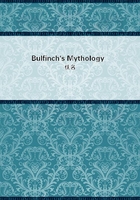
第26章
Pygmalion. Dryope. Venus and Adonis. Apollo and Hyacinthus.
Ceyx and Halcyone.
Pygmalion saw so much to blame in women that he came at last to abhor the sex, and resolved to live unmarried. He was a sculptor, and had made with wonderful skill a statue of ivory, so beautiful that no living woman could be compared to it in beauty.
It was indeed the perfect semblance of a maiden that seemed to be alive, and only prevented from moving by modesty. His art was so perfect that it concealed itself, and its product looked like the workmanship of nature. Pygmalion admired his own work, and at last fell in love with the counterfeit creation. Oftentimes he laid his hand upon it, as if to assure himself whether it were living or not, and could not even then believe that it was only ivory. He caressed it, and gave it presents such as young girls love, bright shells and polished stones, little birds and flowers of various hues, beads and amber. He put raiment on its limbs, and jewels on its fingers, and a necklace about its neck.
To the ears he hung earrings and strings of pearls upon the breast. Her dress became her, and she looked not less charming than when unattired. He laid her on a couch spread with cloths of Tyrian dye, and called her his wife, and put her head upon a pillow of the softest feathers, as if she could enjoy their softness.
The festival of Venus was at hand, a festival celebrated with great pomp at Cyprus. Victims were offered, the altars smoked, and the odor of incense filled the air. When Pygmalion had performed his part in the solemnities, he stood before the altar and timidly said, "Ye gods, who can do all things, give me, Ipray you, for my wife" he dared not say "my ivory virgin," but said instead "one like my ivory virgin." Venus, who was present at the festival, heard him and knew the thought he would have uttered; and, as an omen of her favor, caused the flame on the altar to shoot up thrice in a fiery point into the air. When he returned home, he went to see his statue, and, leaning over the couch, gave a kiss to the mouth. It seemed to be warm. He pressed its lips again, he laid his hand upon the limbs; the ivory felt soft to his touch, and yielded to his fingers like the wax of Hymettus. While he stands astonished and glad, though doubting, and fears he may be mistaken, again and again with a lover's ardor he touches the object of his hopes. It was indeed alive! The veins when pressed yielded to the finger and then resumed their roundness. Then at last the votary of Venus found words to thank the goddess, and pressed his lips upon lips as real as his own. The virgin felt the kisses and blushed, and, opening her timid eyes to the light, fixed them at the same moment on her lover. Venus blessed the nuptials she had formed, and from this union Paphos was born, from whom the city, sacred to Venus, received its name.
Schiller, in his poem, the Ideals, applies this tale of Pygmalion to the love of nature in a youthful heart. In Schiller's version, as in William Morris's, the statue is of marble.
"As once with prayers in passion flowing, Pygmalion embraced the stone, Till from the frozen marble glowing, The light of feeling o'er him shone, So did I clasp with young devotion Bright Nature to a poet's heart;Till breath and warmth and vital motion Seemed through the statue form to dart.
"And then in all my ardor sharing, The silent form expression found;Returned my kiss of youthful daring, And understood my heart's quick sound.
Then lived for me the bright creation.
The silver rill with song was rife;
The trees, the roses shared sensation, An echo of my boundless life."Rev. A. G. Bulfinch (brother of the author).
Morris tells the story of Pygmalion and the Image in some of the most beautiful verses of the Earthly Paradise.
This is Galatea's description of her metamorphosis:
"'My sweet,' she said, 'as yet I am not wise, Or stored with words aright the tale to tell, But listen: when I opened first mine eyes I stood within the niche thou knowest well, And from my hand a heavy thing there fell Carved like these flowers, nor could I see things clear, But with a strange confused noise could hear.
"'At last mine eyes could see a woman fair, But awful as this round white moon o'erhead, So that I trembled when I saw her there, For with my life was born some touch of dread, And therewithal I heard her voice that said, "Come down and learn to love and be alive, For thee, a well-prized gift, today I give."'"DRYOPE
Dryope and Iole were sisters. The former was the wife of Andraemon, beloved by her husband, and happy in the birth of her first child. One day the sisters strolled to the bank of a stream that sloped gradually down to the water's edge, while the upland was overgrown with myrtles. They were intending to gather flowers for forming garlands for the altars of the nymphs, and Dryope carried her child at her bosom, a precious burden, and nursed him as she walked. Near the water grew a lotus plant, full of purple flowers. Dryope gathered some and offered them to the baby, and Iole was about to do the same, when she perceived blood dropping from the places where her sister had broken them off the stem. The plant was no other than the Nymph Lotis, who, running from a base pursuer, had been changed into this form.
This they learned from the country people when it was too late.